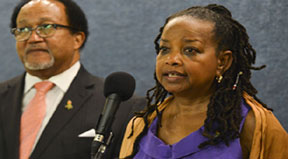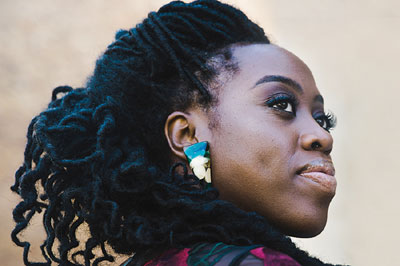

Black women are greater than AIDS
Submitted by The Black AIDS Institute
Today, at the International AIDS Conference in Washington, DC, the Black AIDS Institute is highlighting the problem of HIV/AIDS infections among women, especially Black women, in the United States.
In the U.S., women account for about 1 in 4 people living with HIV-and the majority, roughly 70 percent, of them are Black. Black women, alongside Black gay and bisexual men, experience an extreme disparity in HIV burden.
We know that Black women are of-ten in the role of caretaker for whole families in many cases without the support of another parent or partner. For many of these women it is a daily struggle to keep their children fed, safe, and looked after particularly for poor Black women. Faced with the care of their families, Black women too often are forced to ignore or curb their own needs as they care for others. Furthermore, gender power disparities continue to leave women vulnerable to domestic violence, lower wages and means of survival that put them at elevated risk for HIV infection.
This contributes to the ongoing increase in new HIV infections among women – with tragic implications. It is unacceptable and we need to continue to ramp up our response to HIV among Black women.
Thankfully, there are beacons in the darkness.
One of the terrible consequences of HIV in women has been the transmission of the disease to a newborn child. In most parts of the U.S., mother-to-child transmission has been virtually eliminated. In Washington, DC, the American city with the worst HIV epidemic, there has not been a baby born with HIV since 2009.
Another ray of hope is the galvanizing activism of women responding to HIV/AIDS. Vanguard groups like the U.S. Positive Women’s Network and the “30 for 30” campaign are fighting every day to make sure women are present in all AIDS policy discussions and that dollars, programs, and messages target women in ways that they truly understand. Fierce advocates like Dazon Dixon Diallo of SisterLove in Atlanta, and Naina Khanna of the U.S. Positive Women’s Network, based in Oakland, California, have refused to back down, and Black women living with and at risk for HIV are better off for their efforts.
One of the reasons for the persistence of new HIV infections among women worldwide is that many women lack control over sexual encounter even with their spouses which means that they may not be able to demand the use of condoms or other protective methods. An exciting scientific advance in the last three years is the CAPRISA 004 study, which demonstrates that the concept of a woman-controlled topical gel containing an HIV-killing solution can work. More research needs to be done on these “microbicidal gels,” but it appears we are on track for such a product to reach the market in the not too distant futureperson is a close family member.
While these advances offer hope for an end to AIDS among women, we’re very far from that reality today. The single most important step we can take for women and for all Americansis ensuring the full implementation of the Patient Protection and Affordable Care Act. This will give millions of women and their loved ones access to health care and preventive services they don’t have today. And this is the most important intervention we have.
Women must be part of the AIDS conversation. And thanks to the hard work of women all over the world, in many places they are. Women and men must not relent until AIDS is a memory.





Be the first to comment